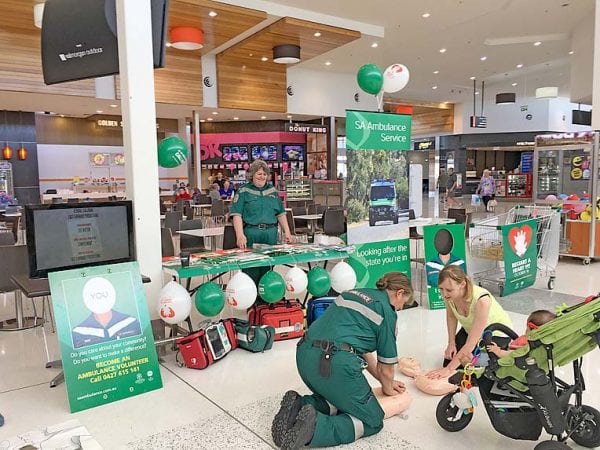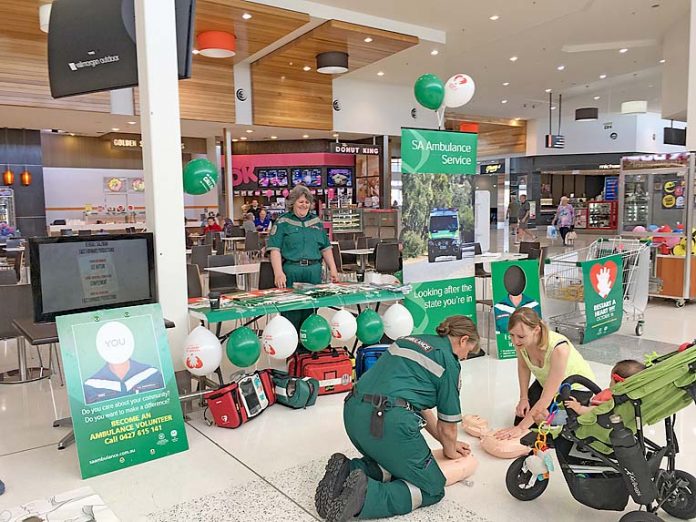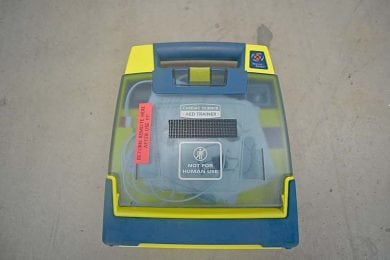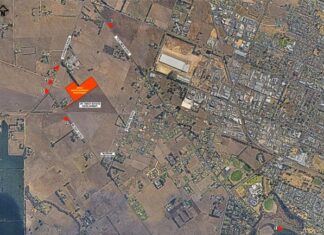
LIMESTONE Coast paramedics held a series of free public events across the region last week for the inaugural nation-wide “Restart a Heart Day”, which promoted the key message that anyone can and should perform CPR.
Restart a Heart Day is a designated day of action across Europe, the United Kingdom and New Zealand, however 2017 is the first year sessions have been held throughout Australia.
The day aims to build community health and resilience by raising the public’s awareness of the importance of bystander cardiopulmonary resuscitation (CPR) through various mediums on and around the day.
Sessions were held in Bordertown, Robe and Mount Gambier and Limestone Coast ambulance operations manager Andrew Thomas said the day was well received by the public.
“It was great to see some people taking some interest as we had a number of people coming up to find out how they can take action, which could potentially save someone’s life,” Mr Thomas said.
“As an ambulance service, we are very much about promoting that people should start CPR as soon as they see someone collapse.”
Mr Thomas said it was important to reduce the fear associated with CPR by encouraging members of the public to take action when faced with a medical emergency.
“Having public education is a great way of getting the message across that someone doing something is always going to be better than no-one doing anything when it comes to CPR,” Mr Thomas said.
“When a person’s heart stops they are relying on someone doing something before an ambulance arrives to continue that treatment.”
The use of automated external defibrillators (AEDs) was also a significant talking point at the sessions.
“The AEDs are automatic in terms of the fact they are self-explanatory and basically tell you what to do,” Mr Thomas said.
“It is fool-proof and designed to be like that so anyone can use it.”
Mr Thomas said the AEDs are becoming more prevalent and readily available at many locations within the Limestone Coast community.
“I think community groups, particularly sporting groups, are now seeing the benefit of having an AED,” Mr Thomas said.
“The ambulance service runs 30-minute basic CPR classes, which are designed for community groups and the session focuses on calling triple zero, starting CPR and how to use the AEDs.”
The survival rate for people who suffer cardiac arrests is 10pc and Mr Thomas hoped with continued initiatives like Restart a Heart Day, that figure will improve.
“Probably around half the time we respond to cardiac arrests, no one is doing anything when we actually get there,” he said.
“We are hoping that by driving the message of ‘doing something is better than doing nothing’ we can improve that survival rate.”











